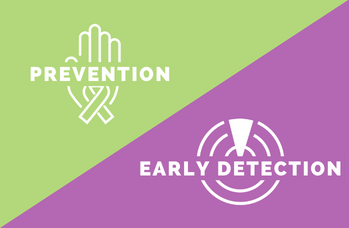Webinar: Increasing Colorectal Cancer Screening in the Primary Care Setting
02 February, 2014
Nevada Cancer Coalition, in conjunction with Nevada Colon Cancer Partnership, is pleased to host this training via toll-free web-conference. This program is eligible for one free CME/CEU credit. Attendees wishing to obtain a CME/CEU credit must complete a post-test evaluation.
Program:
Colon Cancer is the second leading cause of cancer mortality in the United States with more than 50,000 deaths annually. A majority of these deaths, up to 90%, could be prevented with proper screening, however the number of unscreened Nevadans over the age of 50 remains just over 40%. More disheartening, Nevada lags most of the nation in colon cancer screening, and as a result, has one of the highest colon cancer mortalities.
Research has shown the most important factor in a patient’s decision to have a colonoscopy is a referral from their primary care provider. This presentation will review the impact of colorectal cancer in Nevada, current screening recommendations and methods along with their benefits and considerations, as well as ways to implement policy and procedure into the office setting to ensure eligible patients are up-to-date with screening.
Learning Objectives Include:
- Describe the burden of colon cancer nationwide and in Nevada and how mortality from colon cancer can be reduced with colon cancer screening
- Identify the approved options for colon cancer screening and which ones are most appropriate for large scale screening in Nevada
- Discuss the impact that flat polyps such as “serrated adenomas” are having on the accuracy of colon cancer and what measures are being taken to identify and remove them
- Explain how the new smaller “split bowel” preparations can impact the success of colonoscopy in colon cancer screening
- Compare the FIT test with the older Guaiac hemoccult test and describe how it can be used in colon cancer screening
- Increase colon cancer screening rates by offering patients a choice of options
- Discuss how the 5 Essentials of Colon Cancer Screening can improve the effectiveness of an office-based colon cancer screening program
- Improve the effectiveness of an office based colon cancer screening program by using the tools and templates available in the Nevada PCP Toolkit
This activity has been planned and implemented in accordance with the Essential Areas and Policies of the Accreditation Council for Continuing Medical Education through the joint sponsorship of the University of Nevada School of Medicine and Nevada Cancer Coalition. The University of Nevada School of Medicine is accredited by the ACCME to provide continuing medical education to physicians.
The University of Nevada School of Medicine designates this enduring material for a maximum of 1 AMA PRA Category 1 Credit(s)™. Physicians should claim only the credit commensurate with the extent of their participation in the activity.
The University of Nevada School of Medicine approves this program for 1 hours of nursing continuing education credit.
Featured Presenter:
Clark Harrison, MD
Dr. Harrison has practiced with Gastroenterology Consultants in Reno, Nev., since 1992. He focuses on all aspects of gastroenterology and hepatology with a special interest in promoting colon cancer screening and prevention. In practice for more than two decades, his certifications including American Board of Internal Medicine, 1990, and Subspecialty Board in Gastroenterology in 1993. He also serves as a member of the Nevada Colon Cancer Partnership, a non-profit organization dedicated to increasing colon cancer screening rates and access to screening for all Nevadans as well as ensuring access to treatment services for Nevadans with colon cancer.
You May Also Like

2025 Colorectal Cancer Data & Resources
02.25.2025
Colorectal cancer is the #2 cancer killer in Nevada by total numbers, only behind lung cancer.

2025 Colorectal Cancer Data & Resources
02.25.2025
Colorectal cancer is the #2 cancer killer in Nevada by total numbers, only behind lung cancer.

Questions linger after FDA approval of Shield blood test for colon cancer
10.21.2024
In July, the FDA approved the first blood test, called Shield, for primary screening of colon cancer in people at average risk.